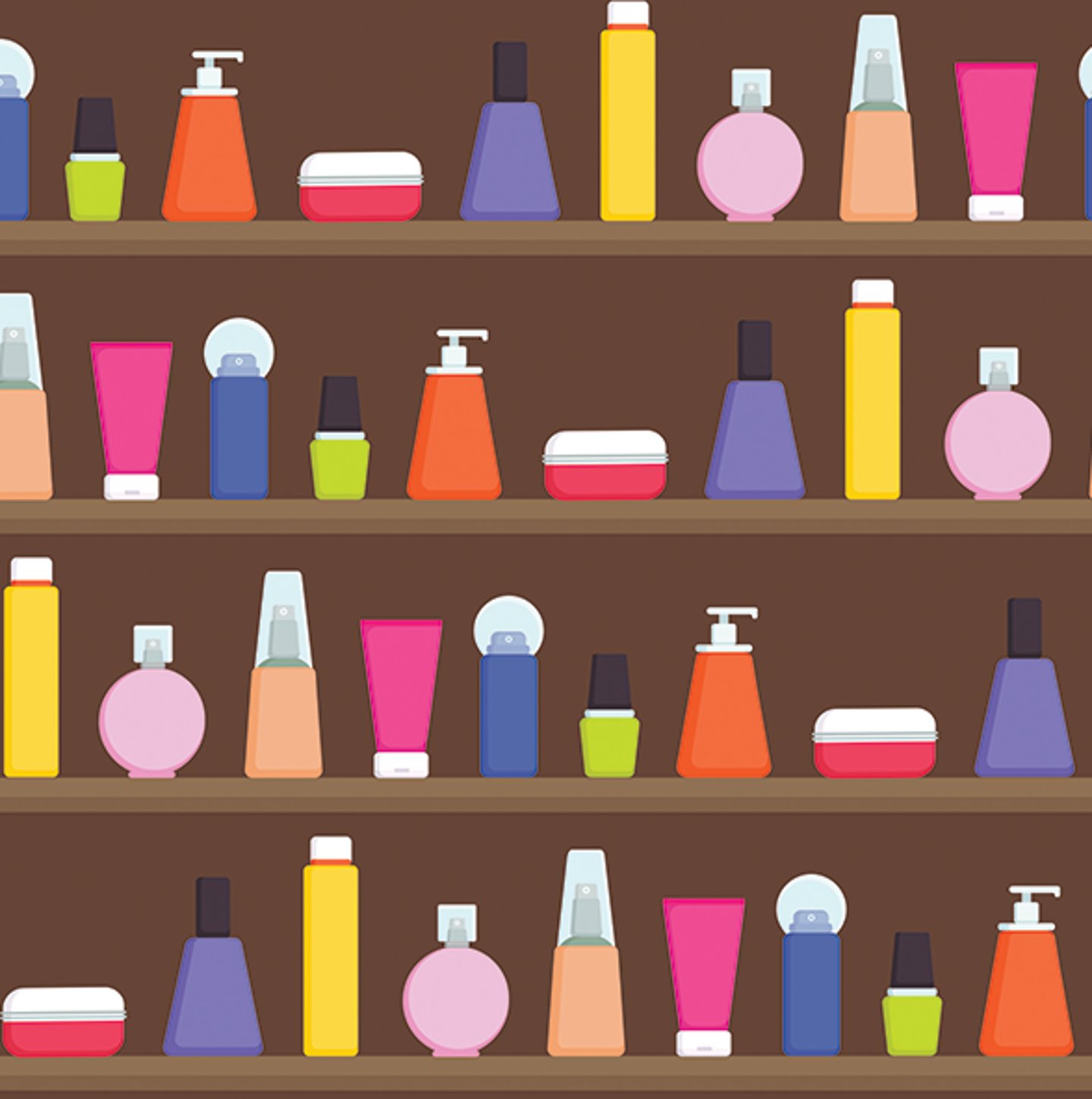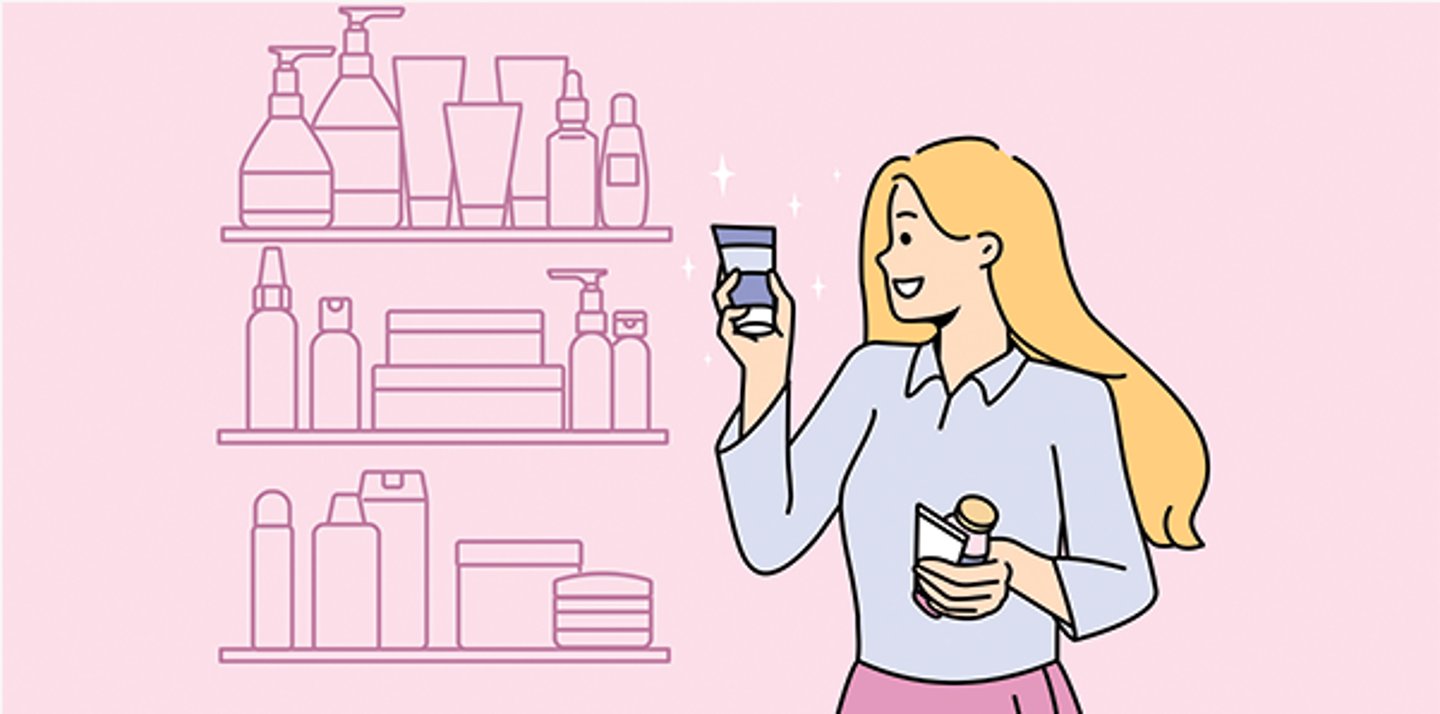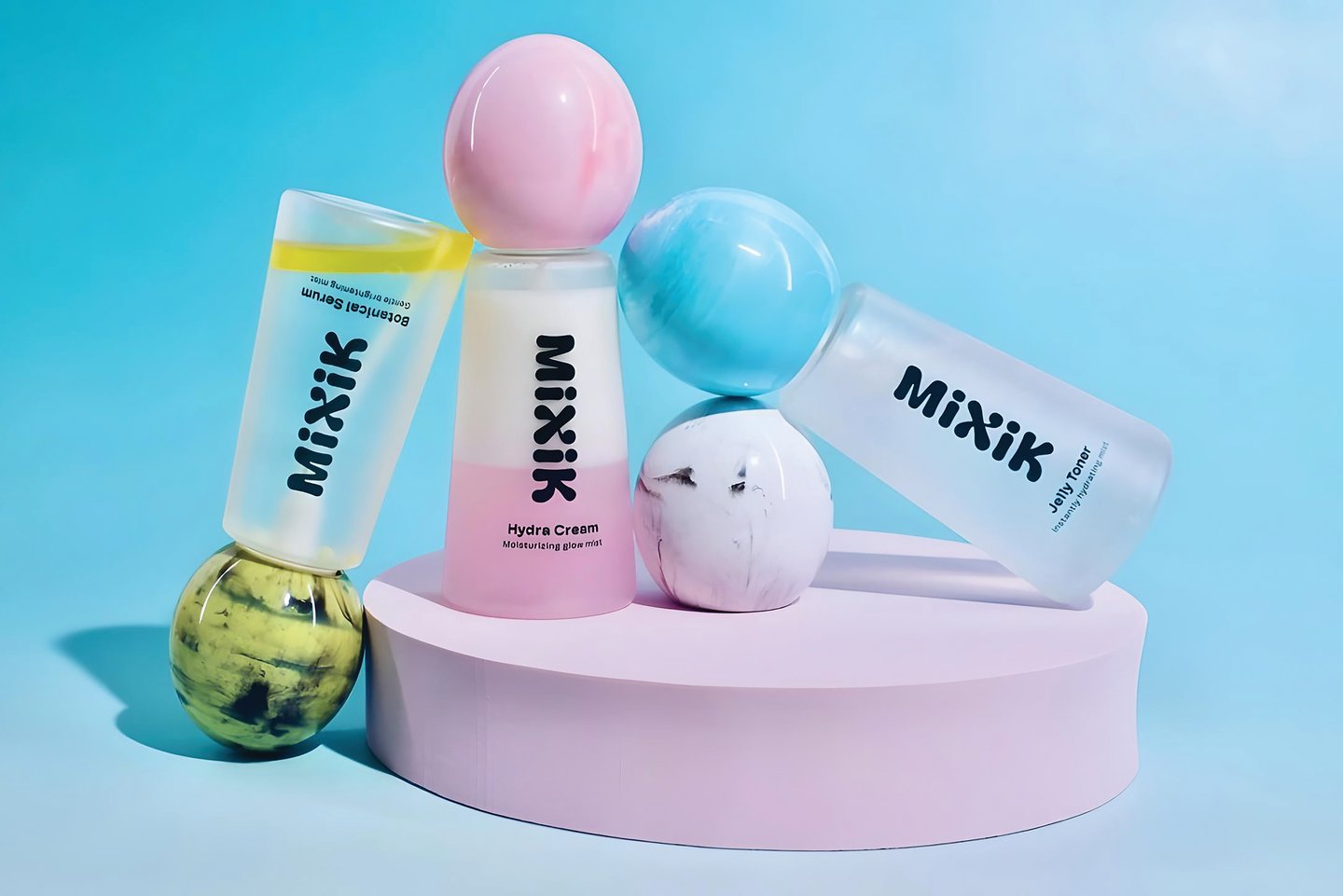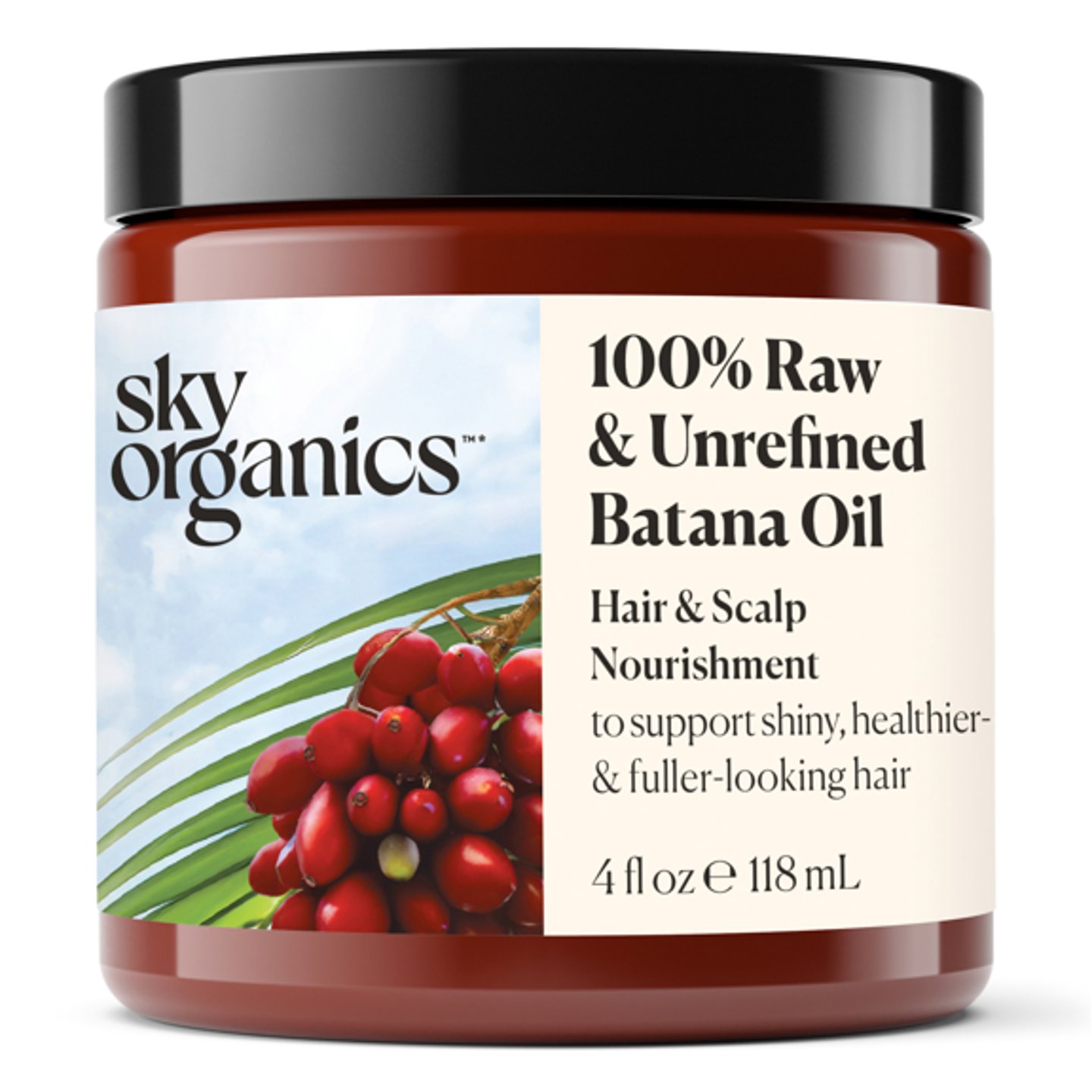Clean beauty goes beyond natural ingredients
Clean beauty stood out to Muffy Clince, senior director of merchandising, emerging brands and initiatives at Ulta Beauty, at the recent Cosmoprof North America exhibition in Las Vegas.
“At Ulta Beauty, we’re constantly on the lookout for the next big thing and brands or products on the rise as we evolve our assortment to stay ahead of the curve,” Clince said, adding she saw many new formulations with clean ingredients.
She also noticed other advancements that are clean-beauty adjacent, including sustainable packaging and refillable components. Consumers who seek clean products also want less packaging waste.
Consumers have spoken and clean ingredients are important. In fact, clean has become table stakes for many. More than 65% of consumers seek clean ingredients, according to Circana.
While shoppers seek clean, the industry remains unregulated, leaving consumers to do their own homework.
“Consumers, in general, continue to become more informed about ingredients,” said Deborah Dixon, owner of Precious Mineralz LLC. ”There are consumer segments that consider these features a top priority and will purchase products with these claims. There are also shoppers who will consider these features as an additional benefit to other features they consider the most important.”
[Read more: Men’s grooming goes beyond showering and shaving]
Dixon defines clean beauty as a product formulated without any harmful ingredients. Some of those often grouped on the “bad list” include phthalates, parabens, talc and artificial dyes and colors. Clean beauty also can include claims such as vegan, cruelty-free and ethically sourced and formulated products, she added.
Precious Mineralz does not use any products with animal-derived ingredients and does not formulate with any ingredients considered harmful. “Our unique raw material, Halloysite, the nanotubular clay, is a natural raw material,” Dixon said “Our Rich Body Polish contains all-natural ingredients (sea salt, shea butter, walnut shell powder, halloysite, jojoba oil, vitamin E and elderberry extract). We also formulate with other natural ingredients such as aloe vera and essential oils.”
What is Clinical Beauty?
With consumers well-versed at researching ingredients, many industry watchers think clinical beauty is moving to the front burner.
Three decades ago, natural and organic personal care emerged as the buzzwords in the market. Clean beauty came next, often grouped together with conscious beauty. The definition of clean is murky, and the industry is not regulated, leaving marketers open to making claims or “clean wash.”
That has opened the door for clinical care, which some experts think is the next step in the evolution. Clinical beauty is generally considered products backed by science, rigorous testing and other factors.
Multinational brands realize the importance of clinical brands, as witnessed by Unilever’s purchase of K18 Biominetic Hairscience last December. K18’s founder, Suveen Sahib, portended the clinical trend: “The industry is moving into science-backed beauty. People want more than just the list of ingredients.”
Dixon said her company focuses on substantiating its claims. “We have significant research data to support that the loaded Halloysite nanotubes penetrate deep into the skin and then the key ingredient is delivered in a time-released fashion. We are a small company, but we have both clinical studies and consumer perception surveys directed at gathering information on our products.”
Drugstores are well-positioned for the clinical movement, with derm-supported brands, such as CeraVe, La Roche-Posay, RoC, Avene and Cetaphil, stocked in the mix. The latter recently announced that L’Oreal has taken a 10% stake in its parent company, Galderma Group AG, with a plan to jointly develop new products to address signs of aging skin.
[Read more: Athletes Feats: Beauty industry puts female sports stars in the spotlight]
The challenge will be for mass retailers to get ahead of the curve, especially with emerging technologies. One such development is exosome technology, which was on display at Cosmoprof from Dr. Robin L. Smith, a pioneer in regenerative medicine now directing her expertise to skincare. Her brand, Exoceuticals, features a form of exosome fine-tuned to optimize and activate the skin’s natural ability to heal, regenerate and tackle changes as skin ages.
Other developments include the use of food as ingredients, artificial intelligence to curate formulas and personalized products based on individual needs.
Making it Safe for Gen Alpha
The focus on ingredients is especially acute for younger consumers who are skin care-obsessed but need brands formulated for their sensitive skin. Gen Alpha (those born between 2010 and 2024) are brand-aware and have earned the name Sephora Kids for their obsession with prestige brands like Drunk Elephant. Their spending power, according to the BBC, is expected to reach more than $5 trillion by 2029.
With the growth of younger shoppers, there’s also growing concern over harsh chemicals, opening the door for new brands that have been crafted for tender skin. “It has been interesting to see how quickly Gen Alpha products have launched,” said Anna Mayo, vice president, beauty vertical, for NielsenIQ. The array of brands spotlighted at Cosmoprof for the younger set sported bold, preppy colors, she said.
Your Skin Stuff is a prime example, according to Ellen Kavanagh Jones, the brand’s founder. The brand just rolled out a Gentle Daily Cleanser that is mild enough to use on all skin types with ingredients such as niacinamide, green tea extract, centella asiatica and aloe vera. “This cleanser, along with the brand’s complete range, has been conceived to provide pre-teens with an easy and enjoyable way to get into a daily habit of washing and gently cleaning your face,” Jones said.
Former Estee Lauder executive Sabrina Yavil spotted a gap in the market for clean products suited for young men. She had first-hand experience thanks to seeing her three sons’ grooming habits. She created her own brand with packaging that isn’t “pink” and a combination of face and body wash. It was important that Gryme was a clean brand, she said, with the goal of avoiding ingredients like harsh surfactants, silicones and preservatives.
Clean, plant power is behind Vita Eyes, a brand offering tweens a safe way to experiment with makeup. The formulas have been proven in third-party dermatological tests not to clog pores or cause acne.
[Read more: Community Builder: A conversation with Sophia Dennis]
Another brand is Talomi, which offers a collection of balms that can be safely used on the eyes, lips and cheeks. The balms are made from non-comedogenic plant-based ingredients. Osman Mithavayani, co-founder and VP of Okay Pure Naturals, noted that his company’s Baby Line is crafted with all-natural ingredients ensuring parents know it’s safe for their children.
The Return of K-Beauty
Beauty from Korea has long been associated with clean ingredients. After a hiatus from the spotlight, K-beauty trends are again in the headlines.
“K-beauty is making a comeback with new cleansing routines and formulas,” said Jaclyn Diamond, omni buyer at Macy’s Inc. K-beauty clean beauty is stretching beyond skin care into categories like sun and hair and new forms, she noted.
Mixik Skin, for example, taps growing interest, especially by Gen Z consumers, in mist delivery systems. Founded by Sunny Oh, Christine Moon and Lena Park, Mixik Skin was created to address what the trio saw as a lack of convenient, sanitary and high-quality skincare options that are inclusive and accessible.
The brand has four items: a cleansing oil, a jelly toner, a botanical serum and a hydra cream.
Ingredient Stories are Key to Sexual Wellness
Ulta Beauty and CVS are among the retailers putting efforts behind female wellness departments. Clean and natural ingredients are paramount in the formulas.
Sarah Jane Ho, the star of Mind Your Manners on Netflix, harnesses the power of herbal remedies and Chinese medicine in her intimate care line, Antevorta. Deeannah Seymour used her pharmaceutical experience and biology training to bring a natural remedy to feminine odor needs.
An antibiotic regimen that disrupted her vaginal flora sparked the idea for her to use boric acid (a natural compound found in seawater) suppositories as an alternative to harsh
chemicals. Today, her brand, pH-D Feminine Health, is in
more than 50,000 stores.
Top Ingredient Trends by Increased Search Volume
- Benzene
- Rosemary Oil
- Ketoconazole
- Castor Oil
- Amla
- Coconut Oil
- Mint
- Vanilla (scent)
- Finasteride
- Ayurvedic Oil
Hair Care Mimics Skin Care’s Clean Ingredients
Clean beauty has entered the hair care realm. Clean products for textured hair caught the eye of Lisa Green, VP, DMM beauty and salon at JCPenney, while at Cosmoprof. “It is all about textured hair with safe and clean ingredients that serve a wider segment of the coily community.”
[Read more: Mass market retailers are having a multicultural moment]
Luseta Beauty’s clean formulations attracted both CVS and Walmart, which added the brand over the past year. The company’s newest innovation is a Rosemary Mint Complex featuring rosemary, mint and biotin.
Retailers reported interest in the Australian brand Skelp!, which takes its name from scalp and health. “We are the power of skin care meeting scalp care,” said Tracy Schembri, global head of sales for Frostbland, the marketer and distributor of the brand.
Social media spurs sales of clean ingredients. Batana Oil is trending on TikTok and is featured in a just-launched line by Sky Organics.
Sourced from Honduras, the 100% raw and unrefined oil contains fatty acids, antioxidants and vitamins that deeply nourish and hydrate the scalp and hair, promoting overall resilience for stronger, healthier-looking hair.
Nadine Ramos hopes the world will go bananas for her clean line. She noticed her sons’ love of bananas and wondered if the health benefits of the fruit could translate to hair and scalp. Her research found that banana oil extracted from the peel is rich in antioxidants and vitamins. This resulted in the launch of Blessed Bananas, a hair repair brand crafted through natural ingredients.
Seaberry is the natural ingredient behind the repairing hair care brand Obliphica Professional. Dalal Moussa loved the brand so much that she bought it in 2013 when she saw how it improved her damaged hair.
The brand is now expanding beyond its salon distribution.













